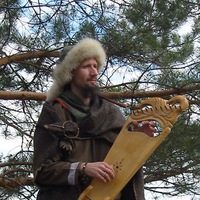Читаю Эриха Фромма, "Здоровое Общество", и наблюдаю там сплошной буддизм высокой пробы; и про "проклятие ума", и про утерянное бытие-в-моменте, и про освобождение от двойственности восприятия. Не даром этот немец столько о любви писал и признал европейское общество больным целиком - ему явно было бы комфортнее сильно восточнее.
"Самосознание, разум и воображение разрушили «гармонию», свойственную животному существованию. Их появление превратило человека в аномалию, в причуду мироздания. Человек — часть природы, он подчинён её физическим законам и не может изменить их, но тем не менее он выше остальной природы. Человек, будучи частью целого, оказывается отделённым от него; он бездомен — и в то же время прикован цепями к дому, общему для него со всеми живыми существами. Заброшенный в этот мир в случайном месте и в случайное время, он изгоняется из него опять-таки по воле случая. Обладая самосознанием, он сознаёт собственное бессилие и ограниченность своего существования. Он предвидит собственный конец — смерть. Человек никогда не бывает свободен от двойственности своего существования: он не может освободиться от разума, даже если бы он этого захотел; он не может освободиться от своего тела, пока он жив, — а тело заставляет его хотеть жить.
Разум — благословение человека — оказывается в то же время его проклятием; он заставляет человека вечно искать решение неразрешимой дихотомии. В этом отношении жизнь человека отличается от существования всех других живых существ; она протекает в условиях постоянной и неизбежной неуравновешенности. Человеческую жизнь нельзя прожить путём простого повторения образцов поведения, свойственных виду; человек должен жить сам. Он — единственное животное, которое может тосковать, может чувствовать себя изгнанным из рая; единственное животное, считающее собственное существование проблемой, которую ему надо решить и от которой не уйти. Он не может вернуться к предчеловеческому состоянию гармонии с природой; человеку придётся продолжать развивать свой разум, прежде чем он сможет стать хозяином природы и самого себя."
"Самосознание, разум и воображение разрушили «гармонию», свойственную животному существованию. Их появление превратило человека в аномалию, в причуду мироздания. Человек — часть природы, он подчинён её физическим законам и не может изменить их, но тем не менее он выше остальной природы. Человек, будучи частью целого, оказывается отделённым от него; он бездомен — и в то же время прикован цепями к дому, общему для него со всеми живыми существами. Заброшенный в этот мир в случайном месте и в случайное время, он изгоняется из него опять-таки по воле случая. Обладая самосознанием, он сознаёт собственное бессилие и ограниченность своего существования. Он предвидит собственный конец — смерть. Человек никогда не бывает свободен от двойственности своего существования: он не может освободиться от разума, даже если бы он этого захотел; он не может освободиться от своего тела, пока он жив, — а тело заставляет его хотеть жить.
Разум — благословение человека — оказывается в то же время его проклятием; он заставляет человека вечно искать решение неразрешимой дихотомии. В этом отношении жизнь человека отличается от существования всех других живых существ; она протекает в условиях постоянной и неизбежной неуравновешенности. Человеческую жизнь нельзя прожить путём простого повторения образцов поведения, свойственных виду; человек должен жить сам. Он — единственное животное, которое может тосковать, может чувствовать себя изгнанным из рая; единственное животное, считающее собственное существование проблемой, которую ему надо решить и от которой не уйти. Он не может вернуться к предчеловеческому состоянию гармонии с природой; человеку придётся продолжать развивать свой разум, прежде чем он сможет стать хозяином природы и самого себя."
I read Erich Fromm, "Healthy Society", and I observe there continuous solid Buddhism of high standard; and about the “curse of the mind”, and about the lost being-in-the-moment, and about the liberation from the duality of perception. It was not for nothing that this German wrote so much about love and recognized European society as a whole patient - it would obviously be more comfortable for him much east.
"Self-awareness, reason and imagination destroyed the" harmony "inherent in animal existence. Their appearance turned a man into an anomaly, into a quirk of the universe. Man is part of nature, he is subject to its physical laws and cannot change them, but nevertheless he is superior to the rest of nature A man, being part of the whole, is separated from him, he is homeless - and at the same time chained to a house common to him with all living beings. Abandoned into this world in a random place and at a random time, he is expelled from it again -so by chance. Possessing self-consciousness, he is aware of his own powerlessness and the limitations of his existence. He foresees his own end - death. Man is never free from the duality of his existence: he cannot be freed from the mind, even if he wanted to; he cannot get rid of his body while he is alive - and the body makes him want to live.
Reason — the blessing of man — is at the same time his curse; it makes a person forever seek a solution to an unsolvable dichotomy. In this respect, human life is different from the existence of all other living beings; it proceeds in conditions of constant and inevitable imbalance. A human life cannot be lived by simply repeating patterns of behavior characteristic of the species; man must live by himself. He is the only animal that can yearn, can feel driven out of paradise; the only animal who considers his own existence to be a problem that he needs to solve and which he cannot escape. He cannot return to the prehuman state of harmony with nature; man will have to continue to develop his mind before he can become the master of nature and himself. "
"Self-awareness, reason and imagination destroyed the" harmony "inherent in animal existence. Their appearance turned a man into an anomaly, into a quirk of the universe. Man is part of nature, he is subject to its physical laws and cannot change them, but nevertheless he is superior to the rest of nature A man, being part of the whole, is separated from him, he is homeless - and at the same time chained to a house common to him with all living beings. Abandoned into this world in a random place and at a random time, he is expelled from it again -so by chance. Possessing self-consciousness, he is aware of his own powerlessness and the limitations of his existence. He foresees his own end - death. Man is never free from the duality of his existence: he cannot be freed from the mind, even if he wanted to; he cannot get rid of his body while he is alive - and the body makes him want to live.
Reason — the blessing of man — is at the same time his curse; it makes a person forever seek a solution to an unsolvable dichotomy. In this respect, human life is different from the existence of all other living beings; it proceeds in conditions of constant and inevitable imbalance. A human life cannot be lived by simply repeating patterns of behavior characteristic of the species; man must live by himself. He is the only animal that can yearn, can feel driven out of paradise; the only animal who considers his own existence to be a problem that he needs to solve and which he cannot escape. He cannot return to the prehuman state of harmony with nature; man will have to continue to develop his mind before he can become the master of nature and himself. "
У записи 4 лайков,
2 репостов.
2 репостов.
Эту запись оставил(а) на своей стене Григорий Безюк

























